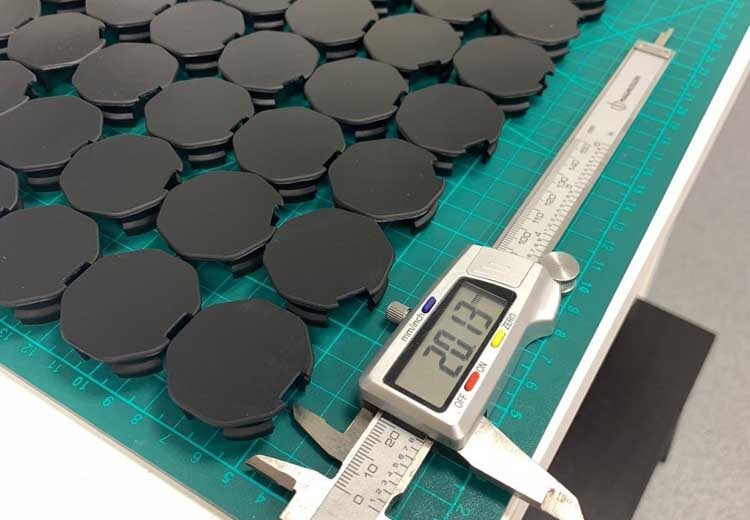Prototype manufacturing is the process of producing a small batch of moulded parts to test design, functionality, and manufacturability before full-scale production begins. It is an essential part of modern product development and helps businesses avoid costly errors before they commit to mass manufacture. This approach is especially common in industries like automotive, medical devices, aerospace, and consumer electronics, where performance and safety are non-negotiable.
By simulating how a product will perform in the real world, prototype manufacturing ensures that potential failures are discovered early. These early-stage iterations provide critical insights that influence material choices, improve component fit, and highlight design inefficiencies. With an accurate prototype, teams can validate form, function, and performance before locking in tooling and committing to high-volume production.
A well-executed prototype manufacture phase allows you to:
– Identify design flaws before production
– Test how parts behave under real conditions
– Reduce material waste and tooling rework
– Lower costs once mass production begins
By producing only what is needed for testing, prototype manufacturing helps businesses save time, conserve resources, and improve product quality.
Several methods are available for creating prototypes, each offering unique advantages depending on your project’s goals and material requirements.
This additive method creates parts layer by layer from a digital model. 3D printing is ideal for early-stage prototype ideas, particularly when developing complex geometries. However, the mechanical strength of printed parts can be a limitation. Because they are built in layers, components may be prone to splitting under stress. Most desktop printers use materials like PLA or ABS, which may not perform the same as final production-grade plastics.
CNC Machining
CNC (Computer Numerical Control) machining produces highly accurate and functional parts. It is commonly used for machined fabrications requiring tight tolerances and smooth finishes. The method is ideal when performance testing is necessary. However, CNC machining can become expensive, especially for complex shapes or high volumes. It also typically involves subtractive manufacturing, which can lead to material waste.
Vacuum casting uses liquid resin poured into silicone moulds under vacuum pressure. This process removes air bubbles and results in a smooth, detailed surface finish. It is particularly useful for custom mouldings or visual prototypes where appearance is important. However, it is not suitable for mass production due to the time-consuming moulding process and limited mould life. Still, it offers a useful bridge between early prototypes and more durable functional units.
Reaction Injection Moulding (RIM)
RIM moulding is a low-pressure process that combines two liquid polymers, usually polyol and isocyanate, which chemically react and solidify in a mould. It creates strong, lightweight parts with complex shapes and is widely used in medical device housings and automotive panels. The cost of tooling for RIM is lower than conventional injection moulding, and design changes can be implemented more easily. This makes RIM an efficient solution for low-volume prototype manufacturing and development projects where flexibility and strength are key.
When to use prototype manufacturing
Prototype manufacturing is beneficial whenever there’s uncertainty about how a product will perform, or when visualising and testing a new concept. It is particularly important:
– When launching a new product and design verification is required
– When testing a product’s fit, form, or function before full production
– When engaging investors or stakeholders who require tangible samples
Prototyping is not just a technical step; it is a communication tool that bridges design intent with practical application.
Partner with ID Mouldings
At ID Mouldings, we provide end-to-end support for prototype manufacturing. Our team helps businesses manage projects from early-stage development to fully tested, production-ready parts. We specialise in plastic and silicone prototyping, combining technical expertise with practical solutions tailored to your industry. Whether you need a one-off sample or a low-volume production run, we help you reduce risk, accelerate development, and deliver better products.
Let’s make your next prototype a success.
info@idmouldings.com

